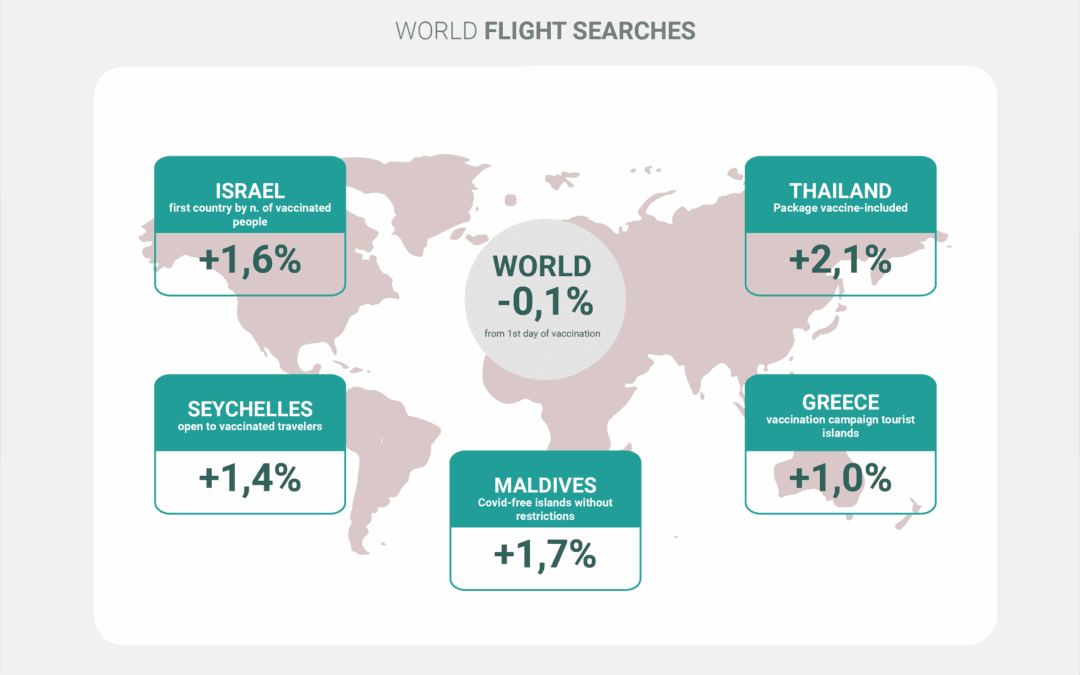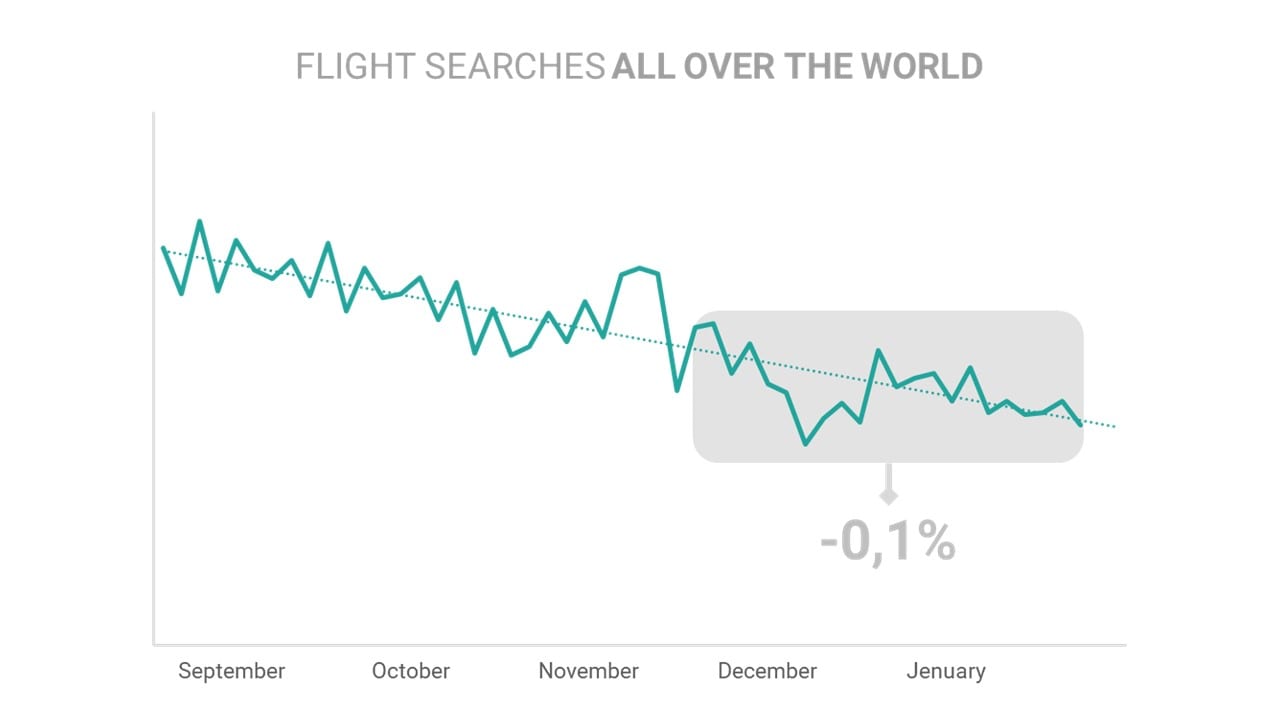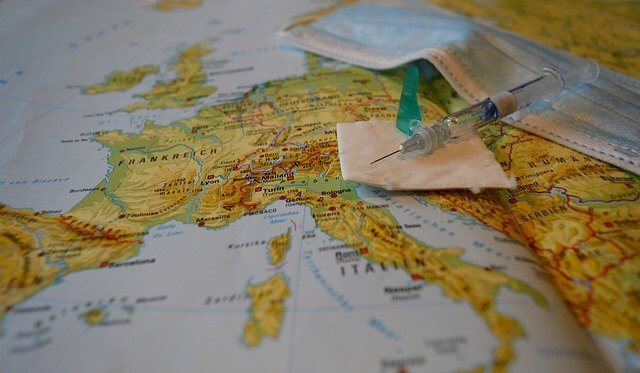“Vaccine will save tourism” for the industry’s restart: while the pandemic seems unabated and variants of the virus threaten attempts to contain contagions, the eyes of operators are all on travel restrictions and vaccination trends in various countries.
NB: This is an article from Lybra
But is vaccine uptake stimulating tourism?
Have tourists started planning trips again?
In fact, from the beginning of the vaccinations to date, it does not seem there’s been a significant change in flight searches and the worldwide growth rate is -0.1%, despite the fact that in early November there was an increase in interest in traveling.
Subscribe to our weekly newsletter and stay up to date

However, to answer these questions, we need to look specifically at those destinations where vaccine development is expected to have a direct reflection on tourism.
Vaccination coverage of the population is certainly a factor that affects the safety of travel and some countries, especially those on islands, are working to immunize residents. In Seychelles, for example, an immunization campaign was launched at the end of January for the islands, with the aim of vaccinating the majority of the population by mid-March and reopening to tourism. In fact, the growth recorded from January 19 to date is 1.39%, despite the fact that the archipelago is already open to vaccinated travelers.
Even Greece has organized its own vaccination campaign to help the sector: The Government has focused on the minor islands, isolated places where the virus has spread little, starting immediately the vaccination of the local population in order to immunize the area and give hope to summer tourism. The announcement of the program was made public a few days ago and perhaps it is still early to assess its impact: at the moment, the variation in searches for flights to Greece is +1.02%.
One might think that the countries that are receiving the most searches are those with a higher rate of vaccinated people, perceived by travelers as safer places: in fact, Israel, the first country in the world in terms of the number of vaccinated people per 100 people, has a growth rate of 1.6%, while the second in the ranking, the United Arab Emirates, -0.3%.
Many countries are choosing a different approach to stimulate tourism, for example, by exempting travelers from the mandatory quarantine: this is the case in many African countries, which have been little affected by the virus, but above all in archipelagos that are notoriously touristy. The Bahamas, for example, reopened to tourism on November 1, freeing tourists from the obligation of self-isolation: since then, flight searches have increased by 1.5%. In the Maldives, similarly, since January 1, 2021, visitors can freely visit Covid-free islands and resorts without quarantine or restrictions: the change is +1.7%.
From an initial survey, therefore, it seems that at the moment the vaccine still has a weak role in the recovery of tourism: even in those countries where local governments have tried to use the vaccine as a lever, it seems as though there haven’t been yet positive results in terms of travel interest. However, in addition to the initiative of individual countries, it will also be necessary to monitor the evolution of transport conditions: experiments are currently underway on the IATA Travel Pass, a certification system shared by all airlines, a digital passport that would help passengers manage and comply with the travel requirements of countries of origin and destination. Finally, while discussions are still underway in Europe on the possibility of introducing a health passport for vaccinated people, in Denmark it will be possible to obtain one around mid-February, enabling Danes to travel in and out of the country without quarantines and restrictions.






